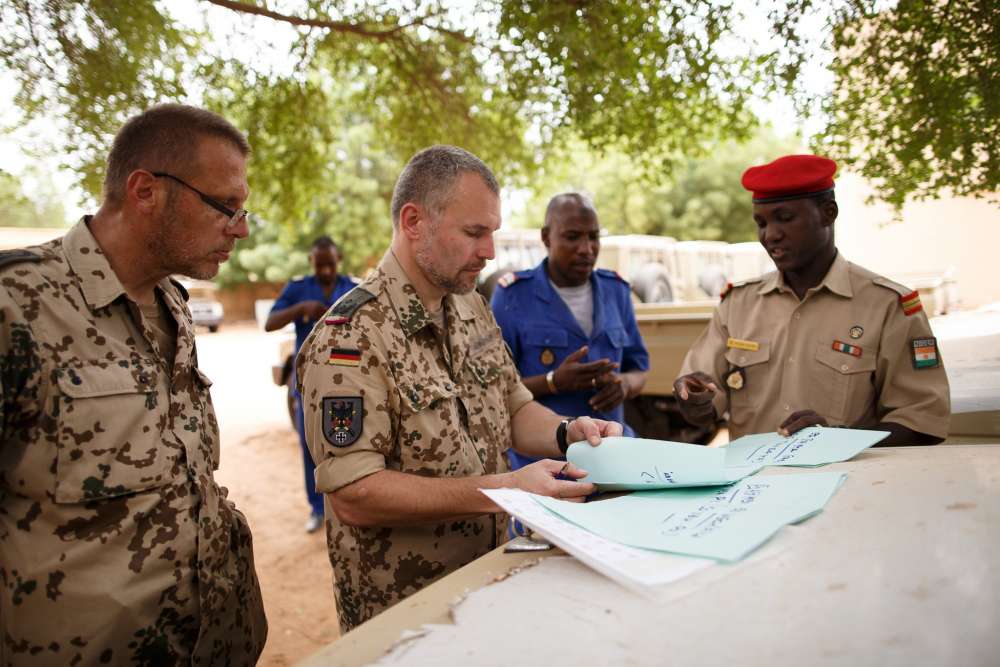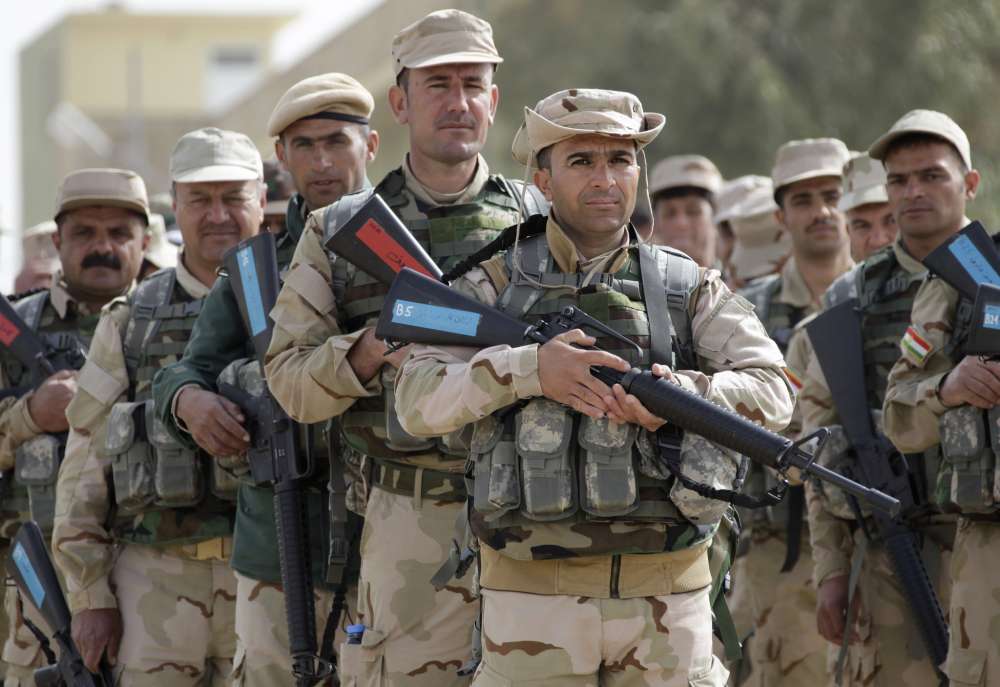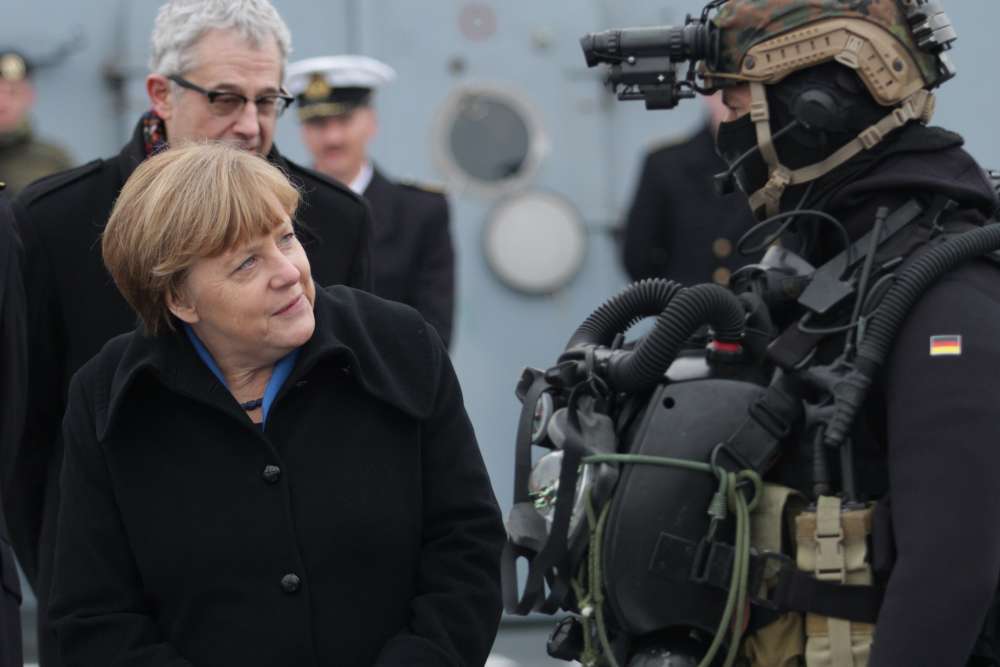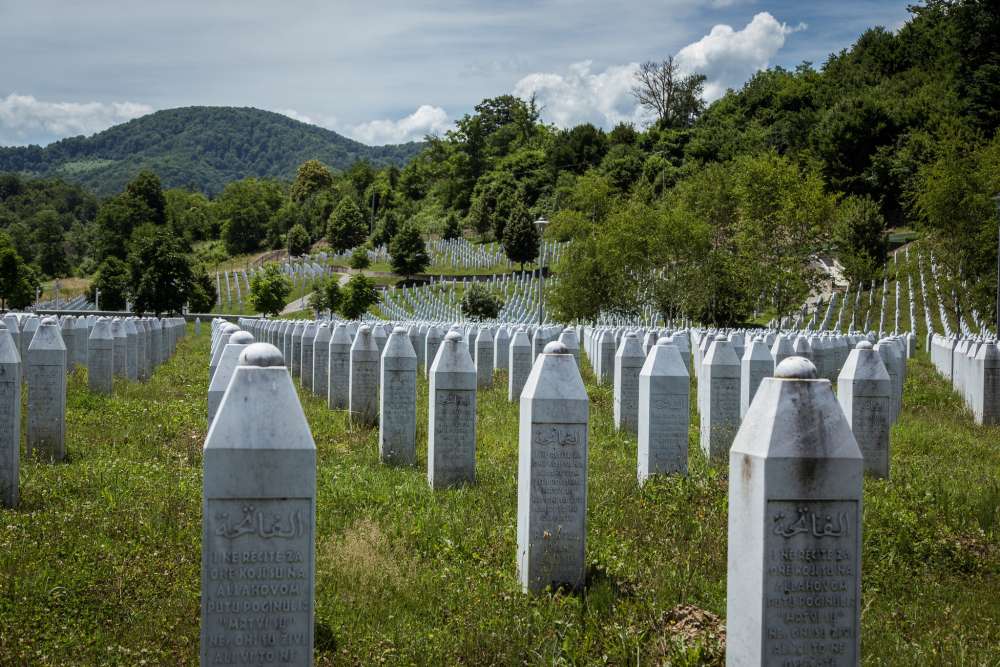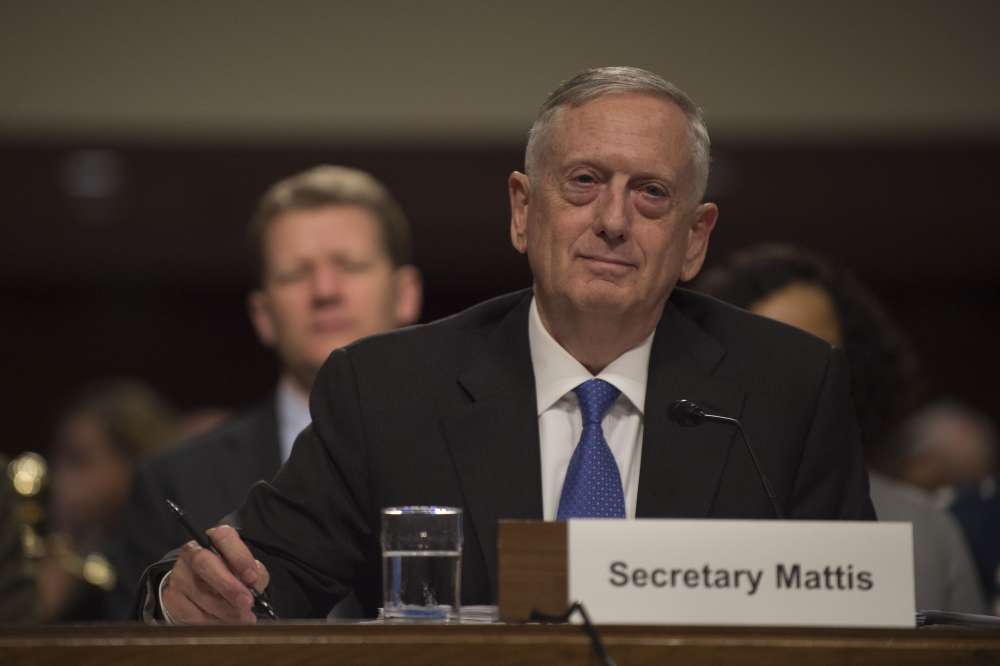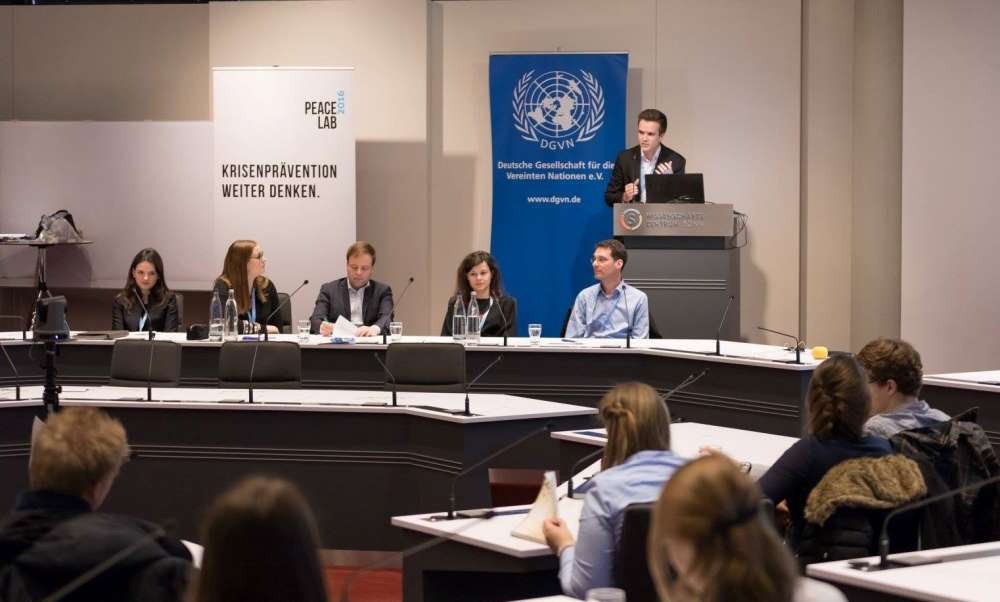Lots of Assistance, Little Reform
Germany’s Security Sector Engagement with Fragile Countries
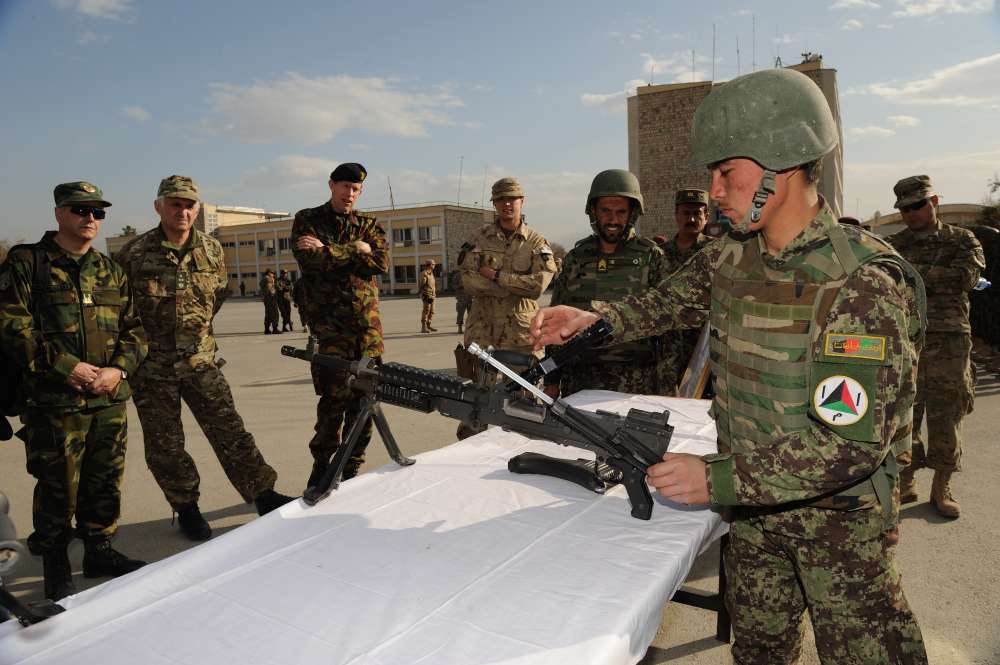
Post-reunification Germany started out, for reasons analyzed elsewhere, with an international security policy best described as reactive, defensive and unimaginative rather than ambitious, creative and risk-taking. A few exceptional decisions and initiatives with regard to the Balkans, Afghanistan, Ukraine and Iraq stand in stark contrast to other times and places, and illustrate the inability of the German political and bureaucratic infra-structure to support its own expectations for a leader-ship role beyond one or two crises at a time. To support civilian and democratic control of security institutions in countries where such control is weak is an ambitious endeavor the pursuit of which requires considerable political courage and creativity over a sustained period of time if it is to have a positive impact. On paper, it is an ambition that fits Berlin’s recently evolved self-image of growing leadership in matters of international peace and security well. It ties perfectly into the historical narrative that shapes international expectations for Germany as the country that went through two major democratic transformations of its military culture and civil-military relations: rebuilding the West German armed forces ten years after the end of World War II, and integrating /de-mobilizing the armed forces of Communist East Germany after reunification.
It fits so well, in fact, that the German government – uniquely among its peers – uses the term “security sector reform” as an umbrella concept for everything it does in support of security institutions in fragile contexts. While the government does not have a figure for this portfolio, it routinely mentions as its largest components three train-and-equip programs, which have collectively grown from less than €20 million (2015) to about €155 million (2017), in addition to €150 million annually since 2015 to support the operating costs of Afghanistan’s security forces. Further growth is already earmarked for the coming years. Compared to these figures, the few civilian programs that focus on actual reforms in security sector governance are tiny and scattered among multiple budget items and ministries. As such, Germany claims hundreds of millions of euros annually in “SSR programming,” but the great majority of that amount is, in fact, security assistance.
That is despite the government’s longstanding normative commitment to an ambitious SSR agenda. Germany has been a member of the Geneva Centre for the Democratic Control of Armed Forces since 2000. In 2006, several ministries issued an “inter-ministerial framework concept” for supporting security sector reform that was written mainly by development experts at the Ministry for Economic Cooperation and Development (BMZ) and based on the 2005 OECD DAC Guidance on Security System Reform and Governance.2 In those days, train-and-equip budgets were tiny, security spending on Afghanistan was minimal, and there was barely any SSR programming focused on reform undertaken by any part of the German government.
Twelve years later the size of the total security assistance portfolio has exploded and the objectives according to which different departments work with foreign security institutions have diverged. As a result, the German government currently has no official policy on SSR, no guidelines on funding support for SSR, and no conceptual clarity on what SSR is, how policy instruments can help achieve it, where it fits into the larger security policy toolbox and how it relates to instruments such as security assistance.
This is supposed to change by the fall of 2018: the government has committed itself to issuing an “SSR strategy” which is being developed by an “SSR working group” of officials from the Foreign Office (chair), the ministries of defense, development, interior and justice, and the Chancellery. It is an opportunity to inject much-needed strategic focus into a sprawling security assistance portfolio, to build a conceptual foundation for twinning security assistance with support to security sector reform programs and to introduce a culture of evaluation to allow for learning and improvement. If it succeeds, it will make a major contribution to the government’s much-flaunted “commitment to enabling our partners to … ensure their national and regional security” in a sustainable manner.
This chapter maps the starting point of that exercise. In three sections it sketches the political ambitions as expressed in the government’s current top-level policy
documents, the reality of SSR-related programming, and the practice of implementation – to the extent possible given the limited publicly available data and lack of in-dependent, publicly available evaluations of most pro-grams. In conclusion, it attempts a brief analysis of the reasons for the gap between ambitious political commitments to reform and an overwhelming operational focus on train-and-equip programs.
Political Ambition: Supporting Reform by Building Capacity
The German government’s paramount policy statement on international security policy, the 2016 White Paper on German Security Policy and the Future of the Bundeswehr, talks a big game of security sector reform in theory. It presents security sector reform as the first “tailored instrument” to “eradicate the causes of conflicts,” one of two that are singled out from the vast toolkit for crisis prevention, stabilization and peacebuilding:
Security sector reform and the promotion of the rule of law and of democratic structures are therefore of particular importance in all phases of conflict. Germany will respond with strategic perseverance to the enormous challenges associated with the long-term stabilisation of fragile, failing and failed states.3
In the following paragraphs, the White Paper introduces a “commitment to enabling our partners not only to manage conflicts independently but also to ensure their national and regional security.” This “enable and enhance approach” (Ertüchtigung in the German original) focuses on “training as well as support and advice for the purpose of capacity building” as “the logical extension of our preventive approach to security.”4 It starts from the recognition – long discovered, forgotten and rediscovered by Germany’s closest partners during their respective colonial histories, in Vietnam and elsewhere – that “material support alone cannot guarantee long-term enhancing and enabling effects. For this reason, material support is complemented by advisory and training measures. If possible, it is embedded in a comprehensive approach that includes initiatives to strengthen good governance and reform the security sector.”5 As such, the ambition expressed by the German government in 2016 is to professionalize partner security forces via train-and-equip while treating SSR as an optional add-on to be deployed only “wherever possible.”6
A year later, in June 2017, the German government adopted another policy statement of equal formal status, equal intended reach (about a decade) and with an overlapping thematic scope: the Guidelines on Preventing Crises, Resolving Conflicts, Building Peace. In it, the government spells out the goals of its peace and security engagement across different “fields of action.” This section includes the following “goal:”
To develop a politically legitimized and accountable security sector which meets professional standards (armed forces, police, judiciary, intelligence services, civil protection and disaster response) and which enjoys public trust. It is the Federal Government’s firm conviction that a functioning security sector bound by human-rights and rule-of-law principles will be instrumental in protecting the population and establishing peace and security;7
This is to be achieved by a range of “approaches and instruments” including an ambitious vision of SSR on the one hand and the train-and-equip program on the other:
Developing, strengthening and reforming the security sector (SSR) is often a key element of peace negotiations and national reconciliation processes. The object of the security sector reform (SSR) is to improve the security of the population, with adequate participation of women and men. It is to be achieved by (re)building effective and responsible security forces embedded in functioning and legitimate political structures accepted by the population. … The key to success is that SSR measures apply to all levels of hierarchy as part of a comprehensive approach from the political executive to the security authorities and all the way to the local offices in charge of security tasks. This also requires the establishment of a civic and public supervision of the security sector. It should also be considered that security forces in (post) conflict situations were often conflict actors themselves or are perceived as such. In order to gain the trust of all population groups, it is paramount to conduct internal reforms and establish processes of dealing with the past.8
The train-and-equip program (the “enable and enhance approach”) follows afterwards:
Enhancing and enabling as well as training and equipment assistance in matters relating to police, military, civil protection and disaster response: … This instrument combines equipment, consulting services and training measures with a view to increasing the capabilities and professionalism of the security forces.9
The “instruments” of “Ertüchtigung” and SSR are thus explicitly subordinated to the joint political “goal,” the supremacy of which is explicitly reinforced for the train-and-equip program: “This instrument [Ertüchtigung] therefore contributes to the development, strengthening and reform [my emphasis] of the security sector, to enabling our partners to better fend for their own stability and hence regional stability, and to strengthening their resilience.”
How is the train-and-equip program supposed to realize this contribution to political reform? In further defining the train-and-equip instrument, the most important political issues such as who controls the security services, what purpose they serve and how that plays out in their organizational cultures are not addressed at all. All the weight of contributing to “resilience” and “reform” is put on training: “the rule of law and the protection of human rights, and more generally, the protection of civilians in violent conflicts are part of the police and military training syllabi.”10 As training alone has never been able to magically produce a political dynamic in favor of difficult reforms, the actual contribution of German train-and-equip programs to SSR is far from automatic, as described by the Guidelines. It depends, in fact, on other drivers for political reform that remain unaddressed. Those factors must be primarily local, but they can be supported by international diplomatic and political means as well as SSR programs. Neither the 2016 White Paper nor the 2017 Guidelines resolved the question of whether or not such support will be available for the same countries that receive German train-and-equip assistance. It will be for the planned 2018 SSR Strategy to provide an answer.
This muddled state of affairs at the top level of doctrine reflects a double split among the missions of different governments departments and resulting organizational cultures within them. The first split is between diplomats and development experts on the one hand and the defense and interior bureaucracy on the other. Diplomats and development experts stressed the need for an ambitious understanding of SSR in line with international standards and the scientific evidence. At the same time, officials in the traditional security ministries focused on security assistance to help partners “do what they are doing already, just more effectively,” such as fighting terrorists or insurgents, or to facilitate transactional co-operation, such as intelligence sharing. The other split is between diplomats, defense and domestic security experts on the one hand, who favored quick-impact approaches, and development experts on the other hand, who pushed for long-term, sustainable approaches.
In the end, the politically ambitious side won the day on paper and the resulting compromise language looks as if Germany could have it both ways (with short-term train-and-equip projects surreptitiously producing political reform). Not only does the latter mirage not stand up to closer scrutiny. Even more problematically for strategy development and implementation, many officials tasked with security assistance /reform in defense and interior security openly deny the validity of these policy statements in favor of what they consider to be the only sober and realistic approach: the technical delivery of training and equipment without any ambitions for reform.11
Programming: Focus on Training and Equipment
By now, the German government has established three specific budget lines to support foreign security institutions. Additional SSR-related programs are being funded from the Development Ministry’s general budget for “technical cooperation” and the Foreign Office’s budget for “crisis prevention.” There is no overall budget for security sector assistance, and the government does not publish comprehensive information about funding, projects or partner countries.
From piecing together the available data, by far the biggest piece of the overall security sector assistance pie is in the three inter-agency train-and-equip programs with their own official budget lines. All three programs are presented by the government as part of its efforts to support security sector reform, which is defined as “to strengthen, to professionalize, to equip security forces and to improve their control by democratic institutions and the rule of law.”12 The three train-and-equip programs are administered by the Foreign Office, in two cases jointly with the Defense Ministry and in the third case with the Interior Ministry providing implementation support: the above-mentioned “enable and enhance initiative” (Ertüchtigungsinitiative, created 2016), the Equipment Aid Programme for Foreign Armed Forces (AH‑P, created in the 1960s) and the new Police Training and Equipment Aid Programme (AAH‑P, created 2017).
They differ in their legal constraints, geographic scope and financial volume. The program that has existed longest, AH‑P, has its roots in donating strictly non-lethal military surplus equipment to western allies in Africa during the Cold War. According to its concept note, the program is “to support the development of the security architecture in a selection of African countries,” or, more specifically, “to enable selected partners to help build peace and security in Africa. This particularly means establishing or improving the capabilities needed to take part in peacekeeping missions run in Africa.” In so doing, the program makes “a contribution from the Federal Government to the enhancement and reform of the security sector in fragile and transition countries.”13
For the four-year planning period of 2017 – 2020, a total volume of almost €63 million has been earmarked for projects with eight African countries: Nigeria (€12m), Senegal (€12m), Tanzania (€9m), Ghana (€8.4m), Cameroon (€8m), Namibia (€7m) and Mali (€6.6m). In keeping with the program’s historical profile and its legal restrictions, the focus of these projects is on improving logistical and medical capabilities of partner militaries. In the current period, however, two new projects with Ghana are getting closer to the sharp end: one seeks to establish a mobile command post (enabling larger, more complex expeditionary operations) and the other to improve military intelligence capabilities.14
The new police equipment and training program, AAH‑P, is the result of an effort to translate the non- lethal military train-and-equip program (AH‑P) into the realm of police cooperation. The basic idea is to combine equipment delivery with training and advisory services. In 2017, the Foreign Office and the Ministry of Interior developed a first set of projects with a focus on forensics (with criminal investigation units) and document verification (with border security units) for Tunisia, Jordan, Morocco, Nigeria, and the Palestinian Territories.15 For the 2017 fiscal year, the government reports a volume of € 4.35 million for this program.16
Unlike the two strictly non-lethal aid programs, the newly established, bigger and more flexible train-and-equip program (Ertüchtigungsinitiative) is restricted to an annual planning cycle. Most of its projects currently (2017) focus on Iraq, Jordan, Mali, Nigeria, and Tunisia, with some additional “individual projects” in Lebanon, Niger and Chad, mostly to improve capabilities for deployment with UN, ECOWAS, AU, NATO, and “soon” OSCE operations. Following an appropriation of €100 million for 2016 (mostly for projects in Jordan /€30 million, Iraq /€25 million and Tunisia /€20 million17 ), the appropriated funds for 2017 amount to €130 million, only some of which funds lethal equipment. 18 Interestingly, a note appended to the budgetary appropriation tasks the program managers with a particularly preventative implementation of military assistance: “Security institutions should be strengthened in such a way so as to either prevent crises or enable partners to react more effectively to crises and solve them on their own.”19 In a written response to a parliamentary question, the government wrote in April 2017: “Through the Ertüchtigungsinitiative, security institutions should be developed and strengthened, wherever possible as part of a security sector reform.”20
The three train-and-equip programs are being administered jointly, although the details differ. The biggest program is jointly administered in full by the Foreign Office and Ministry of Defense. Its annual planning cycle culminates in a joint letter of the two deputy ministers of foreign affairs and defense (Staatssekretäre) to parliament in which they summarize the year’s projects. Their joint signatures are required to unlock the funds for this program. The two non-lethal train-and-equip programs, in contrast, are funded from the Foreign Office budget alone, while the Ministries of Defense and Interior, respectively, provide the technical expertise for project design and guidance, as well as the personnel for the “military advisory groups” and police advisory teams that are being deployed abroad.
Despite the language about security sector reform in these program documents, none of these three pro-grams and budget items provides for efforts to help partner security institutions address the political and cultural obstacles to “ensuring the security of the population” rather than doing the opposite, and to becoming “responsible security forces embedded in functioning and legitimate political structures accepted by the population,” e. g. by “the establishment of a civic and public supervision of the security sector” and “dealing with the past.”21 In practice, the crucial link established in current policy documents – for train-and-equip programs to serve not just as a means toward “professionalizing” partner institutions but also toward the end of political reform – is missing. Such deeply political work has not been funded from the security sector programs so far, nor have the diplomatic service or the military attaché corps been set up to provide the necessary political engagement alongside projects run by technical experts. While some of it appears to be funded from technical cooperation funds (development) and crisis prevention funds (foreign office), doing so remains completely at the discretion of the respective ministries. That separation has helped the Defense and Interior Ministries to maintain their distance from politics and diplomacy and focus instead on the nuts and bolts of equipment, logistics and standardized training projects.22 In contrast to the clear mandates written into the budget for the train-and-equip programs, the Bundestag has not issued any statutory rules about the level of ambition and spending for the political side of SSR.23
Compared to the massive growth of the equipment and training programs, the quantity and scope of work on the politics of the security sector is minimal. Asked about projects “with the primary objective to improve or to strengthen the democratic or civilian control over the respective security forces,” the government recently provided a list of five (5) current projects in four (4) countries with a total volume of € 3.7 million (for 2016 and 2017) in Tunisia (€2 million), the Palestinian Territories (€678,000), Nigeria (€650,000), and Niger (€400,000). Perhaps to underline how little had been done previously, the government response to the parliamentary question also listed two previous projects undertaken from 2006 – 2007 and 2009 – 2010 in Indonesia (€1.1 million). All of these projects are described as supporting training and dialogue between security forces, civil society and parliaments. In addition, the government describes several larger programs run by the Development Ministry in support of African regional organizations (AU, SADC, EAFSCOM), the Kofi Annan International Peacekeeping Training Center and in South Africa as including components supporting the democratic control of security services, without clearly delimiting their financial size and scope. These programs probably invest much more, in financial terms, in supporting good security governance, particularly in the police and justice sectors, than the Foreign Office programs have done so far. Based on anecdotal indications, there are probably additional multilateral programs that either the Foreign Office or the Development Ministry support and that include elements contributing to SSR. Without more specific data, however, it is impossible to disentangle the political components (citizen dialogues, training efforts targeted at political change) from the more expensive technical components of these development projects (construction of police stations and courthouses, delivery of equipment, technical training).24
Finally, with regard to the EU strategic framework on support for security sector reform adopted by the Council on 14 November 2016, the German government has been unable to do more than “welcome EU engagement” and “review to what extent its [existing] efforts may fit the EU framework” – a commitment made in March 201725 and not followed up by the end of the year. With regard to an EU role in security sector assistance, whether train-and-equip or reform, the view from Berlin is that larger countries are stretched to the limit trying to implement and improve their own programs, while there is little added value to be expected from EU-wide processes. Berlin’s main priority, emphasized in the draft coalition agreement between CDU /CSU and SPD in February 2018, is to allow the Instrument contributing to Stability and Peace to fund non-lethal military assistance (“capacity building for security and development”, CBSD, see Schröder /Süßenbach in this volume).26
Implementation
In recent years, the decisions about what to do in support of security institutions or security sector reform abroad resulted from project ideas, budgetary allocations reflecting political priorities (mostly at the country or regional level), and the planning requirements imposed by the budgetary process as such. Analyzing country-level political change, identifying possible windows of opportunity, and strategically designing interventions to support such change does not appear to have played a role in these decisions so far. Project ideas were usually generated “bottom-up” in one of several ways: for the train-and-equip programs, as direct requests from partner governments and/or from the assessment trips of German military or police experts to the country and for politically-focused SSR projects, most often from the fundraising activities of implementing organizations such as DCAF.
The most salient political priorities driving security sec-tor programming were threefold. The first is to support stabilization in countries with either reasonably capable security forces and significant risks of sliding into violent conflict (Tunisia, Jordan, Lebanon) or countries in violent conflict whose security forces urgently need to become more effective and more professional (Iraq, Nigeria, and Mali as well as Afghanistan, which does not show up in the above breakdowns because assistance to the Afghani security forces is a separate budget item). In places such as Tunisia or Nigeria counter-terrorism is part of this priority. In countries where the German military is deployed (as in Afghanistan, Iraq or Mali), these train-and-equip-heavy programs are also a part of the exit strategy. Covering about three quarters of the allocated funds in 2016, this priority – stabilizing the recipient country itself – is by far the most salient political priority driving German security sector support. Of course, sustainable stabilization will not be possible without pragmatic steps of reform, some of which are being taken (such as attempts at integrating irregular militias into the official security institutions in Afghanistan and Iraq, and strengthening civilian oversight capacity in several countries) and some of which are supported by Germany. Elements of security sector reform are thus part of these efforts to professionalize security forces – almost the opposite of the relationship claimed by high-level political doctrine.
A second political priority is to help African countries improve their military crisis management capabilities and to support peace operations in Africa. This is the stated primary focus of the non-lethal military aid program, and some of the AH‑P country programs have begun to have a plausible impact in that field, e. g. in Ghana, Senegal or Tunisia and with some of the African regional organizations. In Tunisia, for example, the program supports the establishment of a mobile “role‑2” field hospital and a camp management unit, both capabilities that are usually in short supply in peace operations, regardless of whether the UN or a regional organization is running the mission. While not meeting any known definition of “security sector reform” as such, and despite only a very indirect relationship to the promotion of internal change in the identity and culture of these security forces, these projects make some of the most promising German contributions to conflict prevention and conflict management
A third, more recent political expectation is to support transit countries in managing migration to Europe, which includes among other things reducing onward migration as well as facilitating returns. The most visible link is in Tunisia, where the biggest projects funded under the Ertüchtigungsinitiative in 2016 were the establishment of a mobile electronic surveillance system at the Libyan border and advisory work of the German federal police for the Tunisian border police, which focused on document verification at the border to Algeria. In a fair assessment, however, the most plausible contribution of both projects lies not in limiting migration to Europe but in the counter-terrorism effort against spillover of fighters and weapons from Libya to Tunisia, the country’s most significant security threat ever since the fall of Gaddafi.
Finally, there are a number of country portfolios in the non-lethal military aid program whose effective contribution to either the internal stabilization of the recipient country or to projecting peace and stability elsewhere is less obvious. Without regular independent evaluations (the first of which have been announced for 2018), it is unclear which of these smaller country portfolios achieve the goals of the program. Interviews with program managers over the past several years, however, suggest that not all of these programs correspond to clear political priorities; some rather appear to survive as a result of bureaucratic inertia at the working level.
At the level of an individual recipient country such as Tunisia, a good example for a partner with a relatively large portfolio across all the components of German security sector assistance, the individual projects are not necessarily connected or deployed in support of an overarching political strategy – whether national (German), European or multilateral. Officials argue that international donor coordination vis-à-vis Tunisia has not worked since the Arab Spring sparked a new wave of interest in the country. Donors are so keen to provide security assistance that Tunisian politicians and officials have no incentive to comply with donor expectations about the strategic implementation of joint projects, let alone ambitious reforms in how security services are run or overseen. It is not entirely clear how large Germany’s role in that donor group actually is, however. The United States alone allocated about $140 million to Tunisia in 2017. Details on France’s security assistance are not as readily available but amount to tens of millions of euros per year, at least.27 The entirety of German security sector assistance to Tunisia, in comparison, was just under €30 million annually in 2016 and 2017. Germany is thus likely to be in third or (if the UK figures are higher) fourth place, but clearly one of the top security partners of the Tunisian government itself – and its biggest development donor to boot, with more than €1 billion per year.
Compared to the normative expectations of the international SSR literature, Germany’s programs in support of security institutions in Tunisia clearly fall short. There is no apparent overall strategy in the sense of a clear political objective combined with a theory of change how the different training, advisory and equipment projects with state security forces or the project promoting civilian and democratic control are meant to work together towards that objective. Conversations with embassy officials conducted in the context of another project in 2016 also shed doubt on the capacity of the embassy to orchestrate the different projects in support of such a larger political strategy. Both the political section and the military attaché have far too few staff for such a strategic role.
The main reason why the kind of strategic and political approach demanded by government policy is missing in practice is probably quite simply the lack of sufficient staff for the relevant units (embassies and the relevant in the ministries in Berlin and Bonn) to develop and guide such political strategies on the one hand and to implement the political engagement parts of these strategies outside the outsourced programs on the other.
A New Opportunity to Build a Real Strategy that Links Assistance and Reform
While the government has committed itself to a strategic and political approach to security sector assistance and reform, it is very much an open question among the officials managing these programs for Germany whether so much ambition is actually necessary or even realistic. The government’s commitment to develop a “strategy on security sector reform” (currently scheduled for adoption by the fall of 2018) creates a new opportunity for discussing this question. For now, it appears that diplomats and development officials are seeking to develop the capacity to be more strategic and therefore more political in their approach to security sector assistance, in part because they realize the political risks associated with train-and-equip projects in volatile environments. The challenge will be to square the circle between the necessary ambition for political reform, codified in the international state of the art that Germany has repeatedly signed up to, and the practical challenges of implementing these principles effectively and still pursuing valid short-term goals.
In fact, having seen what they understand as a huge shortfall in professional competence and organizational efficiency among security services in Africa and the Middle East, many “operators” (mainly military and police officers, but also diplomats) simply cannot envision a realistic path toward political reform. For them, the only realistic policy is not to expect any positive change, and to limit expectations accordingly by talking as little as possible about “reform.” Some of these officials privately consider their train-and-equip programs to be wasteful and pointless exercises in political symbolism, forced on them by politicians who do not understand the complexity of organizational capacity-building but have yielded to the pressure to “do something.” Others appear to believe in a simplistic, a cultural model of capacity-building in which professionally delivered training and good German equipment will not only improve skills among individuals but also increase capacity among recipient institutions and ultimately increase political stability or reduce the push factors driving migration to Europe. A special case in this regard is the role of operational liaison officers sent abroad to work closely with a partner military or police organization. If expected to contribute to political reforms within the partner institution, a conflict of interest emerges in which the pressing need for operational collaboration (obtaining information and support in cases of terrorism, organized crime or illegal migration) always wins over any demands to support change whenever the latter risks causing displeasure among their counterparts on account of “lecturing” or engaging in the internal politics of their institutions.
While these concerns are common among security officials from many Western countries, there is a specifically German element to it as well. Compared to senior officials from countries and organizations (such as the United Nations, including its senior officials from African countries) with a stronger tradition of advising foreign leaders in sensitive political matters, German officials have a significantly more passive understanding of their own role as military, police or civilian security leaders. From a handful of informal interviews with mid-level German officials serving in advisory roles in fragile contexts, the self-image that emerges is quite contradictory. On the one hand, their view of their own strengths – what their German institutions can offer to their Tunisian, Jordanian etc. counterparts – is quite modest, limited to the apolitical nuts and bolts of their respective professions: professional police work, professional military behavior, strictly limited to the working level. On the other hand, there is often an unshakeable belief in the superiority of the particular German interpretation of how to safeguard basic and human rights as part of this professionalism – a belief that often makes it hard to deal with the inevitable shortcomings and dilemmas faced by their local counter-parts. Thus, the laudable commitment to taking “local ownership” seriously runs the risk that programs will be exploited by skillful “local owners,” or will be designed to be of secondary or tertiary importance to local owners to avoid any conflict between the interests of local partners and the principles of the German donor representatives.
What’s missing from the common self-image among German security officials is any sense of the unique role of senior security leaders in a liberal democracy like Germany (in and out of uniform) in managing the delicate boundaries between security professionals and civilian, democratic governance.28 As we might observe from other countries such as France, the UK, the US, and many African countries, the contribution of such individuals can be decisive for building effective working relationships at levels that impact institutional trajectories. In the case of Germany, it is a potential that remains untapped. The most likely reason for this is simply the fact that Germany has almost never deployed senior officials in advisory roles, citing a lack of sufficient numbers to deploy any abroad.
The German government’s design and implementation of security sector assistance and reform programs definitely face bureaucratic challenges – as every policy objective does, particularly those shared across different bureaucracies that are partly in competition with one another. At the same time, the German case does not support the assumption that those bureaucratic challenges suffice to explain the gap between policy practice and the normative expectations set out in the international literature. Searching for alternative or additional explanations would go beyond the scope of this short chapter. Future research in this direction, however, might focus on political and professional cultures, both among classical “uniformed” security institutions (the military and the police) and among civilian institutions with roles in security policy (security ministries, diplomatic services). They might find that post-war Germany was so successful in depoliticizing its security experts that its security institutions at large have developed a deep-set aversion to political exposure, even when the mission is to analyze and promote particular political developments abroad. As a result, German society not only lacks crucial voices in debating its own strategic challenges but also a crucial skillset for achieving its ambitions to support security sector reform abroad. After all, to get the uniforms out of politics and into the barracks is itself a political challenge – and as such requires that the change agent (and his external supporters) be willing and able to engage in politics.
It would thus be at least a starting point if a new German strategy document on security sector assistance and reform ensured a single overarching priority that reflected its recognition of the sensitive political nature of its subject matter, namely to ensure that all programming decisions reflect an explicit and continuously up-dated political economy analysis of actors, interests and conflicts within partner security institutions (something embassies could be equipped to provide), and to actively manage the risks involved in supporting these particular actors and institutions as identified by such analysis. There will not be any easy or perfectly safe choices, but facing up to and consciously developing second-best options will by itself be an improvement over the practices of the past.
…
This study forms a chapter of the 2018 volume Strategy, Jointness, Capacity: Institutional Requirements for Supporting Security Sector Reform, edited by Konstantin Barwaldt and published by the Friedrich-Ebert-Stiftung (FES).
Footnotes
- I am grateful to Konstantin Bärwaldt, Steffen Eckhard and Bodo Schulze for the invitation into this project, and to the many officials across the German and other governments who openly discussed the challenges of security sector assistance and reform with me in recent years – particularly those officials from the Foreign Office and the Ministry of Defense who kindly commented on an earlier draft and saved me from a number of factual mistakes.
- “Interministerielles Rahmenkonzept zur Unterstützung von Reformen des Sicherheitssektors in Entwicklungs- und Transformationsländern”, October 2006, https://web.archive.org… (accessed February 14, 2018).
- 2016 White Paper on German Security Policy and the Future of the Bundeswehr, p. 60, https://web.archive.org/web/20… (accessed May 10, 2018).
- 2016 White Paper, ibid.
- 2016 White Paper, p. 52.
- 2016 White Paper, p. 60.
- 2017 Guidelines on Preventing Crises, Resolving Conflicts, Building Peace, p. 84,
https://web.archive.org/web/20… (accessed February 14, 2018). - 2017 Guidelines, p. 84.
- 2017 Guidelines, p. 88.
- 2017 Guidelines, p. 88.
- Author’s conversations with defense and interior ministry officials at workshops and conferences, on background, 2015 – 2017.
- Deutscher Bundestag, Antwort der Bundesregierung auf die Kleine Anfrage der Abgeordneten Doris Wagner, Omid Nouripour, Agnieszka Brugger, weiterer Abgeordneter und der Fraktion BÜNDNIS 90/DIE GRÜNEN (Drucksache 18/11015), „Deutsches Engagement im Bereich der Sicherheitssektorreform“, Drucksache 18/11458 vom 07.03.2017, p. 2, translation: Philipp Rotmann, https://web.archive.org/web/20… (accessed February 14, 2018).
- Federal Foreign Office /Federal Ministry of Defence, Principles of the Federal Government Equipment Aid Programme for Foreign Armed Forces, June 2015, official translation, on file with author.
- Based on a list of planned projects, dated August 2016, on file with author. Details may have changed since.
- Deutscher Bundestag, „Deutsches Engagement im Bereich der Sicherheitssektorreform“, p. 2; Interview with Foreign Office official, November 2017.
- Deutscher Bundestag, Antwort der Bundesregierung auf die Kleine Anfrage der Abgeordneten Kathrin Vogler, Annette Groth, Andrej Hunko, weiterer Abgeordneter und der Fraktion DIE LINKE (Drucksache 18/13272), „Zivile Krisenprävention und Konfliktbearbeitung“, Drucksache 18/13598, September 15, 2017, own translation, https://web.archive.org/web/20… (accessed May 10, 2018).
- Majjid Sattar, Kosten der Ertüchtigung, Frankfurter Allgemeine Zeitung, May 19, 2016.
- Bundeshaushalt 2017, Einzelplan 60, p. 32.
- Ibid.
- Deutscher Bundestag, Antwort der Bundesregierung auf die Kleine Anfrage der Abgeordneten Jan van Aken, Christine Buchholz, Annette Groth, weiterer Abgeordneter und der Fraktion DIE LINKE (Drucksache 18/11358), „Ertüchtigung von Partnerstaaten“. Drucksache 18/11889, April 7, 2017, own translation, https://web.archive.org/web/20… (accessed February 14, 2018).
- All quotes from the previously cited section of the 2017 Guidelines, p. 84.
- Interviews, various Foreign Office and Defense Ministry officials, 2015, 2016 and 2017.
- There is, however, no earmarking on the part of parliament in favor of particular amounts or specific projects for specific countries; political priorities are rather expressed in general terms and left to the bureaucracy to translate into programming.
- Deutscher Bundestag, „Deutsches Engagement im Bereich der Sicherheitssektorreform“, p. 3 – 4.
- Deutscher Bundestag, „Deutsches Engagement im Bereich der Sicherheitssektorreform“, p. 2.
- CDU, CSU, SPD, “Ein neuer Aufbruch für Europa. Eine neue Dynamik für Deutschland. Ein neuer Zusammenhalt für unser Land: Koalitionsvertrag zwischen CDU, CSU und SPD“, 7 February 2018, p. 148, https://web.archive.org/web/… (accessed February 14, 2018).
- Center for International Policy, “Security Assistance Monitor: Tunisia”, https://securityassistance.org… (accessed on May 10, 2018); John Irish, Marine Pennetier, “Fearing Islamic State spillover, France to push Tunisia aid”, Reuters, March 17, 2016, https://www.reuters.com/… (accessed May 10, 2018).
- The critical role of senior advisers with relevant experience is emphasized, among others, by Louis-Alexandre Berg, “The EU’s Experience with Security Sector Governance”, United States Institute for Peace, 2011, https://web.archive.org/web/20… (accessed May 10, 2018); Michelle Hughes, “The Afghan National Police in 2015 and Beyond”, US Institute for Peace, 2014, https://web.archive.org/web/20… (accessed May 10, 2018); and Andrew Rathmell, “Fixing Iraq’s Internal Security Forces. Why is Reform of the Ministry of Interior so Hard?”, Center for Strategic and International Studies, 2007, https://web.archive.org/web/20… (accessed May 10, 2018).
